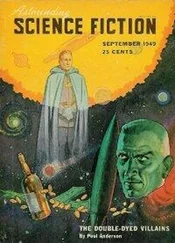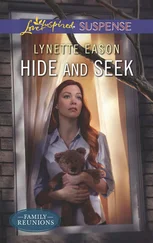Уилки Коллинз - Hide and Seek
Здесь есть возможность читать онлайн «Уилки Коллинз - Hide and Seek» весь текст электронной книги совершенно бесплатно (целиком полную версию без сокращений). В некоторых случаях можно слушать аудио, скачать через торрент в формате fb2 и присутствует краткое содержание. Год выпуска: 2005, Жанр: Классическая проза, на английском языке. Описание произведения, (предисловие) а так же отзывы посетителей доступны на портале библиотеки ЛибКат.
- Название:Hide and Seek
- Автор:
- Жанр:
- Год:2005
- ISBN:нет данных
- Рейтинг книги:5 / 5. Голосов: 1
-
Избранное:Добавить в избранное
- Отзывы:
-
Ваша оценка:
- 100
- 1
- 2
- 3
- 4
- 5
Hide and Seek: краткое содержание, описание и аннотация
Предлагаем к чтению аннотацию, описание, краткое содержание или предисловие (зависит от того, что написал сам автор книги «Hide and Seek»). Если вы не нашли необходимую информацию о книге — напишите в комментариях, мы постараемся отыскать её.
Hide and Seek — читать онлайн бесплатно полную книгу (весь текст) целиком
Ниже представлен текст книги, разбитый по страницам. Система сохранения места последней прочитанной страницы, позволяет с удобством читать онлайн бесплатно книгу «Hide and Seek», без необходимости каждый раз заново искать на чём Вы остановились. Поставьте закладку, и сможете в любой момент перейти на страницу, на которой закончили чтение.
Интервал:
Закладка:
Exiled alike from the worlds of sound and speech, the poor girl’s enjoyment of all that she could still gain of happiness, by means of the seeing sense that was left her, was hardly conceivable to her speaking and hearing fellow-creatures. All beautiful sights, and particularly the exquisite combinations that Nature presents, filled her with an artless rapture, which it affected the most unimpressible people to witness. Trees were beyond all other objects the greatest luxuries that her eyes could enjoy. She would sit for hours, on fresh summer evenings, watching the mere waving of the leaves; her face flushed, her whole nervous organization trembling with the sensations of deep and perfect happiness which that simple sight imparted to her. All the riches and honors which this world can afford, would not have added to her existence a tithe of that pleasure which Valentine easily conferred on her, by teaching her to draw; he might almost be said to have given her a new sense in exchange for the senses that she had lost. She used to dance about the room with the reckless ecstasy of a child, in her ungovernable delight at the prospect of a sketching expedition with Mr. Blyth in the Hampstead fields.
At a very early date of her sojourn with Valentine, it was discovered that her total deafness did not entirely exclude her from every effect of sound. She was acutely sensitive to the influence of percussion—that is to say (if so vague and contradictory an expression may be allowed), she could, under certain conditions, feel the sounds that she could not hear. For example, if Mr. Blyth wished to bring her to his side when they were together in the painting-room, and when she happened neither to be looking at him nor to be within reach of a touch he used to rub his foot, or the end of his mahl-stick gently against the floor. The slight concussion so produced, reached her nerves instantly; provided always that some part of her body touched the floor on which such experiments were tried.
As a means of extending her facilities of social communication, she was instructed in the deaf and dumb alphabet by Valentine’s direction; he and his wife, of course, learning it also; and many of their intimate friends, who were often in the house, following their example for Madonna’s sake. Oddly enough, however, she frequently preferred to express herself, or to be addressed by others, according to the clumsier and slower system of signs and writing, to which she had been accustomed from childhood. She carefully preserved her little slate, with its ornamented frame, and kept it hanging at her side, just as she wore it on the morning of her visit to the Rectory-house at Rubbleford.
In one exceptional case, and one only, did her misfortune appear to have the power of affecting her tranquillity seriously. Whenever, by any accident, she happened to be left in the dark, she was overcome by the most violent terror. It was found, even when others were with her, that she still lost her self-possession at such times. Her own explanation of her feelings on these occasions, suggested the simplest of reasons to account for this weakness in her character. “Remember,” she wrote on her slate, when a new servant was curious to know why she always slept with a light in her room—“Remember that I am deaf and blind too in the darkness. You, who can hear, have a sense to serve you instead of sight, in the dark—your ears are of use to you then, as your eyes are in the light. I hear nothing, and see nothing—I lose all my senses together in the dark.”
It was only by rare accidents, which there was no providing against, that she was ever terrified in this way, after her peculiarity had first disclosed itself. In small things as well as in great, Valentine never forgot that her happiness was his own especial care. He was more nervously watchful over her than anyone else in the house—for she cost him those secret anxieties which make the objects of our love doubly precious to us. In all the years that she had lived under his roof, he had never conquered his morbid dread that Madonna might be one day traced and discovered by her father, or by relatives, who might have a legal claim to her. Under this apprehension he had written to Doctor Joyce and Mrs. Peckover a day or two after the child’s first entry under his roof, pledging both the persons whom he addressed to the strictest secrecy in all that related to Madonna and to the circumstances which had made her his adopted child. As for the hair bracelet, if his conscience had allowed him, he would have destroyed it immediately; but feeling that this would be an inexcusable breach of trust, he was fain to be content with locking it up, as well as the pocket-handkerchief, in an old bureau in his painting-room, the key of which he always kept attached to his own watch chain.
Not one of his London friends ever knew how he first met with Madonna. He boldly baffled all forms of inquiry by requesting that they would consider her history before she came into his house as a perfect blank, and by simply presenting her to them as his adopted child. This method of silencing troublesome curiosity succeeded certainly to admiration; but at the expense of Mr. Blyth’s own moral character. Persons who knew little or nothing of his real disposition and his early life, all shook their heads, and laughed in secret; asserting that the mystery was plain enough to the most ordinary capacity, and that the young lady could be nothing more nor less than a natural child of his own.
Mrs. Blyth was far more indignant at this report than her husband, when in due time it reached the painter’s house. Valentine rather approved of the scandal than not, because it was likely to lead inquisitive people in the wrong direction. He might have been now perfectly easy about the preservation of his secret, but for the distrust which still clung to him, in spite of himself, on the subject of Mrs. Peckover’s discretion. He never wearied of warning that excellent woman to be careful in keeping the important secret, every time she came to London to see Madonna. Whether she only paid them a visit for the day, and then went away again; or whether she spent her Christmas with them, Valentine’s greeting always ended nervously with the same distrustful question:—“Excuse me for asking, Mrs. Peckover, but are you quite sure you have kept what you know about little Mary and her mother, and dates and places and all that, properly hidden from prying people, since you were here last?” At which point Mrs. Peckover generally answered by repeating, always with the same sarcastic emphasis:—“Properly hidden, did you say, sir? Of course I keep what I know properly hidden, for of course I can hold my tongue. In my time, sir, it used always to take two parties to play at a game of Hide and Seek. Who in the world is seeking after little Mary, I should like to know?”
Perhaps Mrs. Peckover’s view of the case was the right one; or, perhaps, the extraordinary discretion observed by the persons who were in the secret of Madonna’s history, prevented any disclosure of the girl’s origin from reaching her father or friends—presuming them to be still alive and anxiously looking for her. But, at any rate, this much at least is certain:—Nobody appeared to assert a claim to Valentine’s adopted child, from the time when he took her home with him as his daughter, to the time when the reader first made his acquaintance, many pages back, in the congenial sphere of his own painting-room. [1] NOTE TO CHAPTER VII. I DO not know that any attempt has yet been made in English fiction to draw the character of a “Deaf Mute,” simply and exactly after nature—or, in other words, to exhibit the peculiar effects produced by the loss of the senses of hearing and speaking on the disposition of the person so afflicted. The famous Fenella, in Scott’s “Peveril of the Peak,” only assumes deafness and dumbness; and the whole family of dumb people on the stage have the remarkable faculty—so far as my experience goes—of always being able to hear what is said to them. When the idea first occurred to me of representing the character of a “Deaf Mute” as literally as possible according to nature, I found the difficulty of getting at tangible and reliable materials to work from, much greater than I had anticipated; so much greater, indeed, that I believe my design must have been abandoned, if a lucky chance had not thrown in my way Dr. Kitto’s delightful little book, “The Lost Senses.” In the first division of that work, which contains the author’s interesting and touching narrative of his own sensations under the total loss of the sense of hearing, and its consequent effect on the faculties of speech, will be found my authority for most of those traits in Madonna’s character which are especially and immediately connected with the deprivation from which she is represented as suffering. The moral purpose to be answered by the introduction of such a personage as this, and of the kindred character of the Painter’s Wife, lies, I would fain hope, so plainly on the surface, that it can be hardly necessary for me to indicate it even to the most careless reader. I know of nothing which more firmly supports our faith in the better parts of human nature, than to see—as we all may—with what patience and cheerfulness the heavier bodily afflictions of humanity are borne, for the most part, by those afflicted; and also to note what elements of kindness and gentleness the spectacle of these afflictions constantly develops in the persons of the little circle by which the sufferer is surrounded. Here is the ever bright side, the ever noble and consoling aspect of all human calamity and the object of presenting this to the view of others, as truly and as tenderly as in him lies, seems to me to be a fit object for any writer who desires to address himself to the best sympathies of his readers.
Интервал:
Закладка:
Похожие книги на «Hide and Seek»
Представляем Вашему вниманию похожие книги на «Hide and Seek» списком для выбора. Мы отобрали схожую по названию и смыслу литературу в надежде предоставить читателям больше вариантов отыскать новые, интересные, ещё непрочитанные произведения.
Обсуждение, отзывы о книге «Hide and Seek» и просто собственные мнения читателей. Оставьте ваши комментарии, напишите, что Вы думаете о произведении, его смысле или главных героях. Укажите что конкретно понравилось, а что нет, и почему Вы так считаете.











